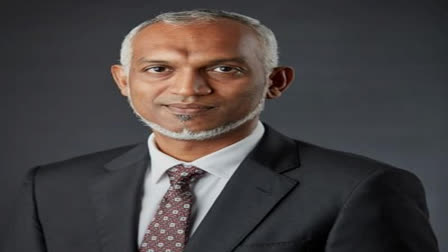New Delhi: With opposition candidate Mohamed Muizzu defeating incumbent Ibrahim Solih in this year’s presidential election in the Maldives, India will be gingerly watching what policies the new President adopts.
While Muizzu secured 53 per cent of the votes, Solih secured 46 per cent in the presidential runoff that was held on Saturday. Muizzu won by a margin of 18,000 votes, according to local media reports. The voter turnout was 86 per cent, which, though higher than the 79 per cent in the first round, is still the lowest for a presidential election in the Indian Ocean archipelago nation.
Muizzu was the frontrunner in the runoff after he had garnered 46.06 of the votes in the first round held on September 9. Solih had secured 39.05 per cent of the votes then. This led to the runoff between Muizzu and Solih as none of the eight candidates in the fray in the first round secured 50 per cent of the votes.
Muizzu, who is currently serving as the Mayor of the Maldives’ capital Male, was the joint candidate of the People’s National Congress (PNC) and the Progressive Party of Maldives (PPM). Initially, former President Abdulla Yameen of the PPM, known for his pro-China stance, was nominated as the joint candidate of the PNC and the PPM. But since Yameen is serving an 11-year jail term due to a money laundering case, he became ineligible to contest the election. As a result, Muizzu of the PNC was nominated as the joint PNC-PPM candidate.
Solih, who is known as being pro-India, is the leader of the ruling Maldivian Democratic Party (MDP). He qualified to contest the election after defeating former President Mohamed Nasheed in the MDP primaries in January this year. A few months after his defeat in the primaries, Nasheed parted ways with Solih, a childhood friend, and floated a new party called The Democrats. Nasheed, who is also known for his pro-India stance, then put up Ilyas Labeeb as The Democrats’ candidate against incumbent President Solih. Labeeb, however, could garner only 7.18 per cent of the votes in the first round.
According to Anand Kumar, Associate Fellow at the Manohar Parrikar Institute of Defence Studies and Analyses, this was the main reason for Solih’s defeat.
“Solih lost because of major internal differences in the MDP,” Kumar, who has authored the book Multi-party Democracy in the Maldives and the Emerging Security Environment in the Indian Ocean Region, said. “This divided the vote share and helped the opposition.”
According to reports, ahead of Saturday’s runoff, Nasheed was bargaining hard with Solih to hold a referendum to change the country’s political system from a presidential to a parliamentary one. Solih had apparently been assuring Nasheed that the referendum would be held if he is reelected or before his current presidency ends. Now, with Solih losing and Muizzu set to be sworn in on November 11, it remains to be seen whether such a referendum will be held between now and then.
“If a referendum is held at all and even if people vote in support of a parliamentary system, it will only add to the political uncertainty,” Kumar said.
